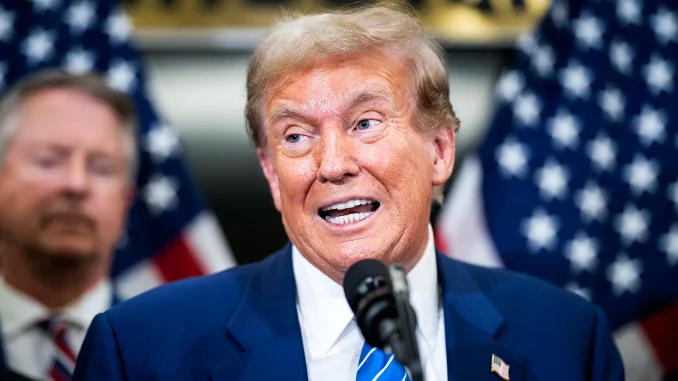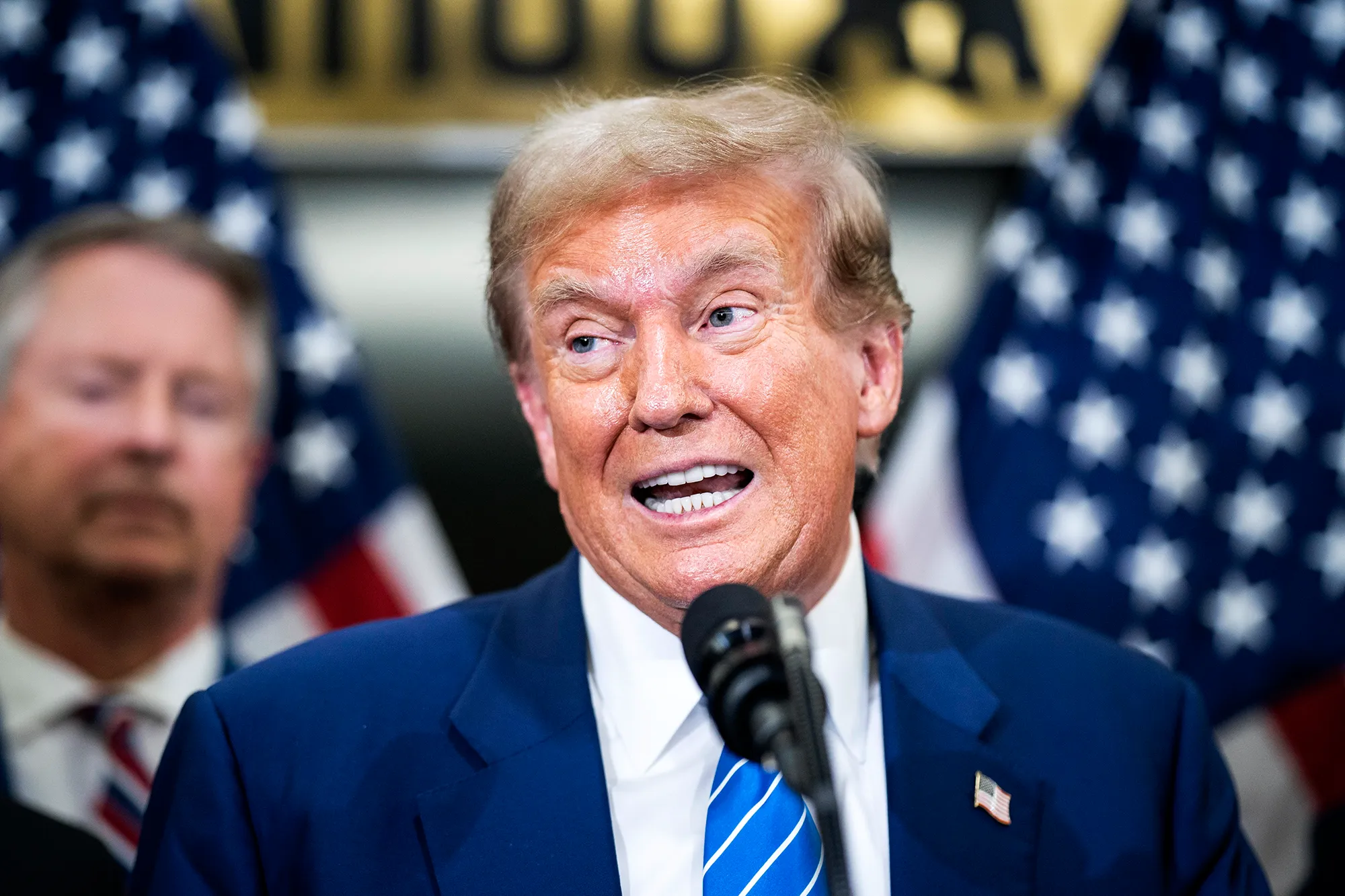

Donald Trump, the 45th president of the United States, is perhaps best known for his brash personality and controversial political career. However, before his time in the White House, Trump built a global brand and vast business empire, primarily in real estate and entertainment. Even after leaving office, his influence on the U.S. economy continues to be felt. Many of his business strategies—characterized by bold decision-making, leveraging brand power, and a no-holds-barred approach to expansion—have left a lasting imprint on American commerce and the broader global economic landscape.
Trump’s business acumen, while divisive, is undeniable. From his early years in the real estate market to his ventures in casinos, hotels, and even television, Trump’s approach to business has shaped industries and changed the dynamics of American capitalism. Even more significantly, his aggressive decision-making and high-risk, high-reward strategies have influenced policies, corporate behavior, and the way American companies approach growth, marketing, and branding.
The Trump Brand: Leveraging Name Recognition
One of Donald Trump’s most significant business strategies was the aggressive cultivation of his personal brand. Known for his extravagant lifestyle, flashy real estate developments, and appearances in media, Trump made his name synonymous with success and wealth. He understood the power of brand recognition, using his surname as both a logo and a marketing tool. This has had a lasting impact not only on his own business ventures but also on the broader business world, influencing how corporations and entrepreneurs approach branding.
The Trump brand has extended beyond real estate into various industries, including hospitality, entertainment, and even consumer goods. From the Trump Tower in New York to Trump Hotels and golf courses, Trump’s name became a guarantee of luxury and exclusivity, drawing high-end clientele. He made branding an integral part of his business strategy—emphasizing not only the physical product or property but the perception of prestige and success that came with the Trump name.
Even after stepping away from the direct management of many of his companies during his presidency, Trump’s brand continued to have immense economic power. Companies, licensing agreements, and investments tied to his name have shown the incredible influence that personal branding can have on business success. This strategy has also shaped how American businesses leverage celebrity culture and personal brands to increase value and attract customers.
Bold Expansion and High-Risk Investments
Trump’s business strategy was built on taking bold, high-risk steps that many other entrepreneurs or companies would shy away from. His real estate ventures, especially in New York City, often involved huge investments in luxury buildings or properties that required substantial capital up front, with returns not guaranteed. His gamble on properties like the Trump Tower, a 58-story skyscraper in midtown Manhattan, paid off when the building became a landmark and a symbol of the Trump brand.
This approach of seeking out properties or projects that others saw as too risky or unconventional has had a broader impact on American business culture. Entrepreneurs and corporate leaders, particularly in the real estate industry, have been influenced by Trump’s example of going big and betting on the long-term rewards of strategic investments. His ability to turn major investments into high-profile developments has inspired others to take more calculated risks, thereby reshaping the landscape of modern business.
Trump’s business ventures also included the Trump Organization’s push into the global market, with properties and golf courses in countries like Scotland, Ireland, and Dubai. His international expansion strategy highlighted the importance of establishing a brand that could transcend borders, a crucial lesson for American companies in today’s interconnected global economy.
Influence on Tax and Regulatory Policy
Donald Trump’s business philosophy didn’t stop at personal branding and bold expansion—it also extended into his views on government regulation, taxation, and corporate freedom. As president, Trump implemented several policies that were designed to benefit big business, reduce corporate taxes, and deregulate industries. The Tax Cuts and Jobs Act of 2017, which lowered the corporate tax rate from 35% to 21%, is one of the most significant policies that Trump pushed through, arguing that it would spur investment, job creation, and economic growth.
Trump’s tax cuts were seen as a direct benefit to corporations, especially large ones, as it gave them more capital to reinvest in their businesses, expand operations, and increase dividends for shareholders. While critics argue that the cuts disproportionately benefited the wealthy and did not provide the promised broad-based economic growth, there is no denying that the policy had a significant impact on U.S. businesses, particularly in terms of their ability to invest and grow.
Furthermore, Trump’s focus on deregulation sought to reduce government oversight, especially in the financial, energy, and healthcare sectors. His administration rolled back a number of regulations that business leaders saw as burdensome, claiming that these policies would free up companies to innovate, expand, and hire more workers. This “pro-business” stance has had a lasting impact on American corporate culture, shaping the way industries view government intervention and regulation.
The Trump Effect on American Manufacturing
One area where Trump’s business approach has had a more complicated but undeniable impact is in manufacturing. During his presidency, Trump championed policies designed to revitalize American manufacturing, particularly in areas like steel, automotive, and industrial products. He famously imposed tariffs on foreign steel and aluminum, arguing that these protective measures were needed to protect American jobs and businesses from unfair foreign competition, especially from China.
While the effectiveness of these policies remains debated, Trump’s advocacy for bringing jobs back to the U.S. has had an impact on the way American companies think about outsourcing, global supply chains, and manufacturing. Companies in industries such as automotive and electronics are more likely today to reassess where they produce goods and where their supply chains are located, driven in part by concerns about the stability of international trade relations.
Long-Term Impact: Shaping the Next Generation of Entrepreneurs
Donald Trump’s business strategies have left an indelible mark on the American economy and on how businesses are run today. His bold approach to investment, branding, and government policy has reshaped industries and influenced an entire generation of entrepreneurs. His emphasis on personal branding, high-risk investments, and tax-friendly policies has set the stage for new opportunities in a fast-evolving global economy.
Whether or not one agrees with his approach, Trump’s impact on the American business landscape is undeniable. His methods have reshaped industries, influenced policy debates, and inspired business leaders to take bigger risks and think outside the box. In many ways, his legacy will continue to shape American business practices for decades to come, as entrepreneurs and executives draw lessons from both his successes and his failures.
Leave a Reply